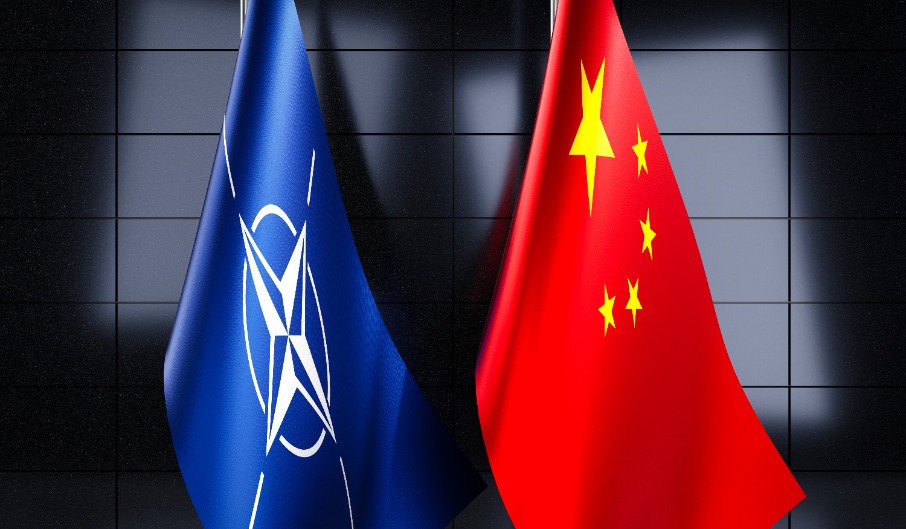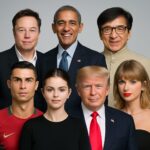Is China in NATO?

Is China in NATO?
NATO and China
Is China a part of NATO? No, China is not a member of NATO. In fact, NATO has expressed concerns about China’s activities on the global stage.
NATO has raised concerns over China’s efforts to modernize its nuclear arsenal, its alleged dissemination of disinformation, its investments in critical infrastructure in various countries, and its endeavors to control key supply chains.
Furthermore, China’s growing military and economic influence in space, cyberspace, and maritime domains has been noted by NATO. The alliance believes that China’s actions challenging the established rules-based order run counter to the values and interests shared by its member states.
As a result, NATO perceives China as a potential challenge to its allies and the international order.
NATO refers to China in the New Strategic Concept for the first time
Your summary of the evolution of NATO’s “Strategic Concept” and its stance on China and Russia is informative and well-structured. I’ve made a few adjustments for clarity and coherence:
In June 2022, NATO introduced a new “Strategic Concept” designed to guide the alliance’s direction for the forthcoming decade. Accompanying this was a Leaders’ Declaration that, notably, referenced China in the Strategic Concept for the first time. This declaration articulated that China presents a “systemic challenge” to the Alliance.
It had been roughly 12 years since NATO’s last adoption of a strategic concept in 2010. While the previous version characterized NATO’s relationship with Russia as a “strategic partnership” and made no mention of China, the latest version designates Russia as “the most significant and direct threat.” This adjustment mirrors the current geopolitical landscape, particularly in light of Russia’s invasion of Ukraine and its escalating tensions with NATO.
Furthermore, NATO has grown increasingly apprehensive about China’s utilization of coercive influence, underpinned by its formidable military and economic prowess.
China’s reaction to NATO’s declaration was swift, denouncing it as a mischaracterization of its peaceful development aspirations. They further urged a cessation of exaggerations regarding the so-called “Chinese threat.”
NATO countries aim to reduce dependence on China
At a meeting convened on November 30, 2022, in the Romanian capital of Bucharest, NATO foreign ministers deliberated on the appropriate response to concerns regarding China’s burgeoning military capabilities. Amidst the backdrop of the energy crisis catalyzed by Russia’s incursion into Ukraine, Secretary General Stoltenberg articulated a wish to curtail reliance on “China and other authoritarian regimes.”
The agenda encompassed discussions on China’s ambitious military evolution, technological strides, and burgeoning cyber capabilities. Stoltenberg clarified NATO’s position, stating, “China is not an adversary, and we are not embarking on a new Cold War with China.” He continued, “While we maintain trade and economic ties with China, it’s imperative we acknowledge our dependencies and judiciously manage associated risks.”
It’s noteworthy that China dominates approximately 70% of the global supply of rare earths — critical components for semiconductor and other high-tech product manufacturing. NATO recognizes the potential peril stemming from this high dependency, especially in light of current geopolitical dynamics. The alliance fears that should ties between Europe, the U.S., and China further deteriorate, this reliance might furnish China with leverage. This concern has been accentuated by Russia’s strategic reduction in natural gas provisions to Europe, a move perceived as a counter to European sanctions imposed post Russia’s invasion of Ukraine.
Furthermore, the U.S. has been actively advocating for NATO member nations to heighten their vigilance concerning the escalating Chinese threat to Taiwan.
Some salient points include:
- China’s armed forces have swelled to become the world’s largest, boasting over two million active-duty soldiers.
- NATO’s apprehensions concerning China’s military proliferation have grown, especially given recent revelations of China’s establishment of military installations in Africa.
NATO vs. China and Russia
NATO has voiced significant concerns over the deepening strategic ties between Russia and China, noting, “The growing alliance between Russia and China, combined with their endeavors to undermine the rules-based international order, stands in opposition to our values and interests.”
While China has refrained from publically condemning Russia’s incursion into Ukraine, Chinese President Xi Jinping has indicated sympathy towards Russia’s position. He has also expressed criticism of the economic sanctions imposed on Russia by Western nations.










